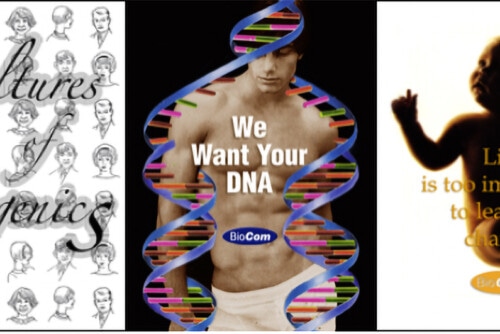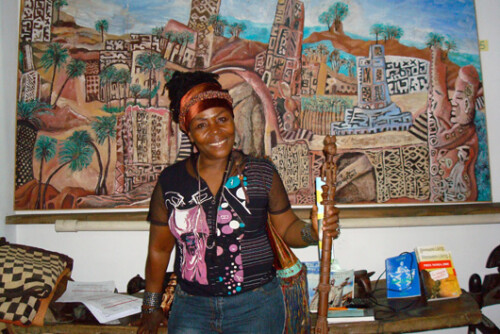So what are the lessons this review of feminist positions on new reproductive technologies and the legacy of IVF offer to us today?
Haraway shares a feminist kinship with Firestone in her attempt to imagine a technologically-assisted reproductive future as both liberatory and transgressive. She also shares with Firestone a radical distaste for the normative structures of kinship, parenting, and family—taking her inspiration from feminist writers such as Joanna Russ, whose gender-free worlds precisely enact many of Firestone’s prescriptions. Both theorists belong to a socialist-inspired tradition of progressive humanism laced with biofuturism, and yet one which, because of its feminism, does not translate easily into contemporary idioms of transhumanism, posthumanism, autopeoetic emergence, rhizomatic becoming, the new vitalism, or postmodern cybernetics. Significantly, both Haraway and Firestone share an abiding concern with women’s labor, and in particular with women working within the sciences. As Firestone writes in The Dialectic of Sex.
The absence of women at all levels of scientific disciplines is so commonplace as to lead many (otherwise intelligent) people to attribute it to some deficiency (logic?) in women themselves. Or to women’s own predilections for the emotional and the subjective over the practical and the rational. But the question cannot be so easily dismissed. It is true that women in science are in foreign territory—but how has this situation evolved? Why are there disciplines or branches of inquiry that demand only a “male” mind? Why would a woman, to qualify, have to develop an alien psychology? When and why was the female excluded from this type of mind? How and why has science come to be defined as, and restricted to, the ‘objective’? 1
In thinking about the cultural legacy of IVF from a feminist point of view we should continue to ask critical questions about the unregulated ‘baby business’ and its risks, as well as its global expansion and commercialisation as a highly stratified market in reproductive tissue and services. 2 Simultaneously, we should remain concerned about access to these technologies and the value systems that are perpetuated through them. We should add to this list an appreciation of the extent to which IVF, while reinforcing some gender, racial, and kinship norms, has subverted others, and contributed to the collapse of biological foundationalism. 3 We should not forget the life sciences are an increasingly feminised transnational workforce, and we should look for new and unexpected alliances here. If there is an as yet under-realised feminist movement within the sciences, this is something to which we might want to pay attention in our teaching, our reading, and our politics. Above all we need to be brave and think about our biological future in a transbiological age. If it can rightly be said that rethinking the biological is already one of feminisms most important contributions to contemporary thought, the time is ripe to stretch the envelope. But listen to me; I am starting to write another manifesto.
Video
Podcast
Listen using the player above or visit BCRW on iTunes to download or subscribe to BCRW’s podcasts.
Sarah Franklin – Podcast Description
Sarah Franklin delivers the keynote address at the 2009 Scholar and Feminist Conference. Increased demand for assisted reproductive technology (ART) and transnational adoption has been propelled by a number of factors, including the development of new technologies and changes in familial form – such as childrearing in second or third marriages; lesbian, gay, and transgendered families; and delays in childbearing and subsequent difficulties in conception – that make ART helpful. Other relevant factors include environmental changes that have negatively affected fertility levels, new levels of transnational migration and interaction that have fueled awareness of babies available for and in need of adoption, and concerns about genetic diseases and disabilities. Effectively, the various imperatives and the desires, both cultural and personal, that the use of ART fosters and responds to, have created a “baby business” that is largely unregulated and that raises a number of important social and ethical questions. Do these new technologies place women and children at risk? How should we respond ethically to the ability of these technologies to test for genetic illnesses? And how can we ensure that marginalized individuals, for example, people with disabilities, women of color, and low-income women, have equal access to these new technologies and adoption practices? And, similarly, how do we ensure that transnational surrogacy and adoption practices are not exploitative? These questions and many others on the global social, economic and political repercussions of these new forms of reproduction were the focus of this year’s Scholar and Feminist Conference, “The Politics of Reproduction: New Technologies of Life,” which took place on February 28, 2009 at Barnard College.
- Firestone. [↑]
- Debora Spar, The Baby Business: How Money, Science, and Politics Drive the Commerce of Conception (Cambridge: Harvard Business School Press, 2006).[↑]
- For a discussion of feminist perspectives on the biological see: Sarah Franklin, “Biologization Revisited: Kinship Theory in the Context of the New Biologies,” in Relative Values: Reconfiguring Kinship Studies, Sarah Franklin and Susan McKinnon, eds. (Durham: Duke University Press, 2002): 302-22. See also: Sarah Franklin, Celia Lury, and Jackie Stacey, Global Nature, Global Culture (London: Sage, 2002).[↑]



